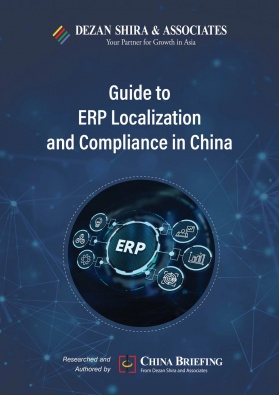China Passes Its First Value-Added Tax Law
On December 25, 2024, the Standing Committee of the 14th National People’s Congress (NPC) approved the Value-Added Tax (VAT) Law, which will come into effect on January 1, 2026.
Significance of VAT in China
VAT is China’s largest tax category, contributing significantly to national revenue. According to the Ministry of Finance, domestic VAT revenue reached approximately RMB 6.9 trillion in 2023, accounting for about 38 percent of total national tax revenue. For the first 11 months of 2024, VAT revenue was around ¥6.1 trillion, maintaining the same share.
With over 60 million VAT taxpayers, and given its application to goods, services, and real estate, VAT has a direct impact on both businesses and consumers. This wide-reaching relevance made the legislative process a focal point for policymakers and the public alike.
Evolution of VAT Law in China
China’s VAT system was first introduced through the Interim Regulations on Value-Added Tax of the People’s Republic of China (the “Regulations”), promulgated by the State Council in late 1993 and implemented in 1994. Over the years, the VAT regime expanded, especially after the reform that replaced business tax with VAT, further broadening its scope.
With key reforms now fully implemented, the conditions for enacting a VAT law were deemed mature. The draft VAT Law was opened for public consultation at the end of 2022 and underwent three readings before gaining approval at the end of 2024.
Key features of the VAT Law
The new law adheres to the principles of maintaining the current VAT framework and keeping overall tax burdens stable. As such, VAT rates and other key elements remain consistent with the existing system. The full text of the VAT Law has not yet been released.
Progress in China’s tax law legislation
The passage of the VAT Law marks a significant milestone in China’s efforts to codify its tax system. Among China’s 18 existing tax categories, 14 now have dedicated legislation covering most of the country’s tax revenue. This development reflects substantial progress in implementing the principle of taxation by law, strengthening legal foundations for tax governance.
|
China’s Tax Law Development |
||
| Tax laws | Promulgation date | Implementation date |
| Value Added Tax Law | December 25, 2024 | January 1, 2026 |
| Custom Duty Law | April 26, 2024 | December 1, 2024 |
| Stamp Tax Law | June 1, 2021 | July 1, 2022 |
| Deed Tax Law | August 11, 2020 | September 1, 2021 |
| Urban Maintenance and Construction Tax Law | August 11, 2020 | September 1, 2021 |
| Resources Tax Law | August 26, 2019 | September 1, 2020 |
| Vehicle and Vessel Tax (revised) | April 23, 2019 | April 23, 2019 |
| Corporate Income Tax Law (Revised) | December 29, 2018 | December 29, 2018 |
| Farmland Occupation Tax | December 29, 2018 | September 1, 2019 |
|
Vehicle Purchase Tax Law
|
December 29, 2018 | July 1, 2019 |
| Environment Protection Tax Law (Revised) | October 26, 2018 | October 26, 2018 |
|
Vessel Tonnage Tax Law (Revised)
|
October 26, 2018 | October 26, 2018 |
|
Individual Income Tax Law (Revised)
|
August 31, 2018 | January 1, 2019 |
| Tobacco Tax Law | December 27, 2017 | July 1, 2018 |
| Consumption Tax Law | Draft released | |
| Property Tax Law | To be developed | |
| Land Appreciation Tax Law | Draft released | |
| City and Town Land Use Tax | To be developed | |
What’s next?
As businesses and individuals prepare for the VAT Law’s implementation in 2026, attention will turn to the forthcoming details of the legislation and its implications for taxpayers. Policymakers and tax authorities will focus on ensuring a smooth transition to the new legal framework, preserving the stability of tax policies and compliance processes.
About Us
China Briefing is one of five regional Asia Briefing publications, supported by Dezan Shira & Associates. For a complimentary subscription to China Briefing’s content products, please click here.
Dezan Shira & Associates assists foreign investors into China and has done so since 1992 through offices in Beijing, Tianjin, Dalian, Qingdao, Shanghai, Hangzhou, Ningbo, Suzhou, Guangzhou, Haikou, Zhongshan, Shenzhen, and Hong Kong. We also have offices in Vietnam, Indonesia, Singapore, United States, Germany, Italy, India, and Dubai (UAE) and partner firms assisting foreign investors in The Philippines, Malaysia, Thailand, Bangladesh, and Australia. For assistance in China, please contact the firm at china@dezshira.com or visit our website at www.dezshira.com.
- Previous Article China’s Supreme Court Clarifies Non-Retroactive Application of Article 88 (1) of the New Company Law
- Next Article








